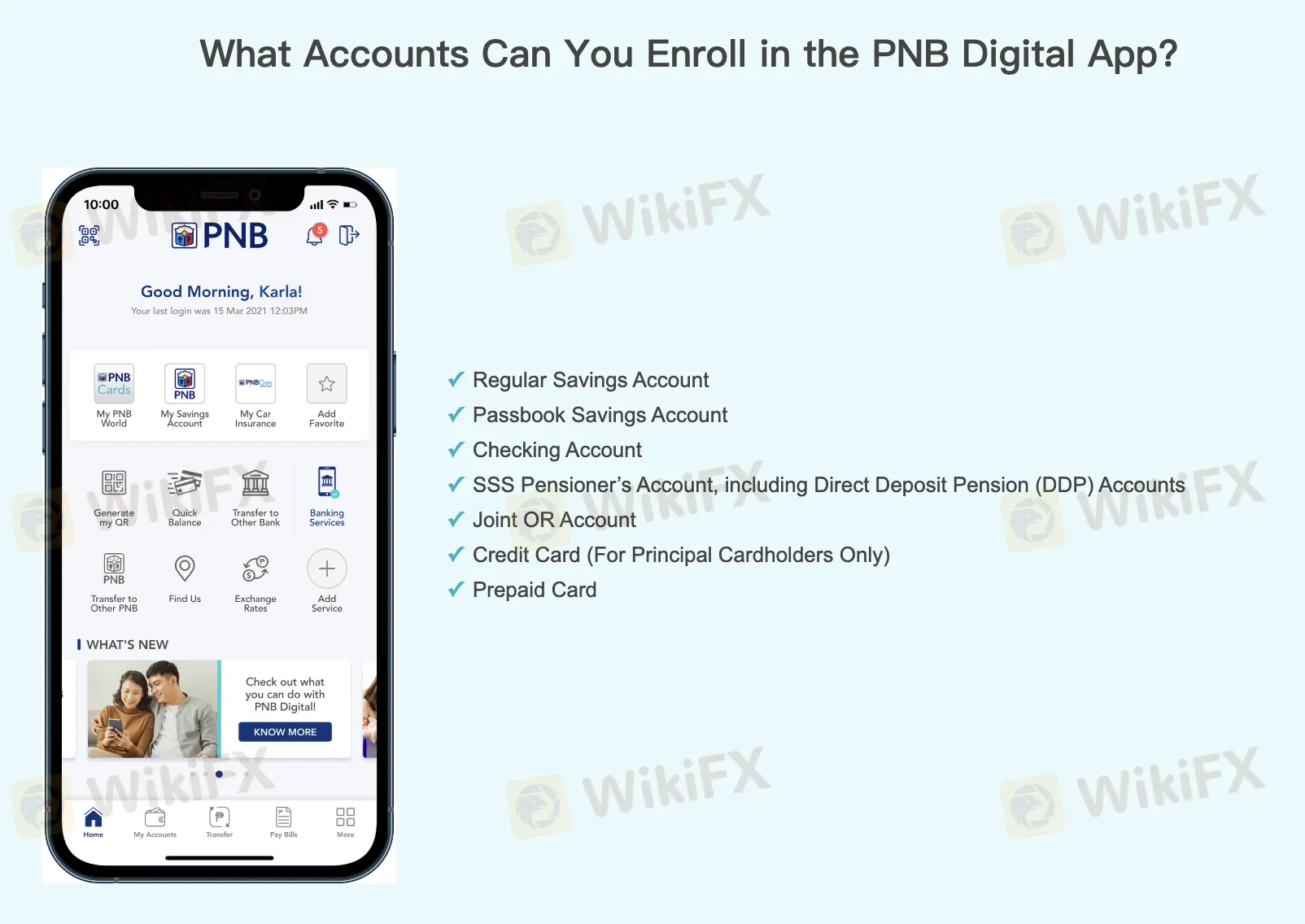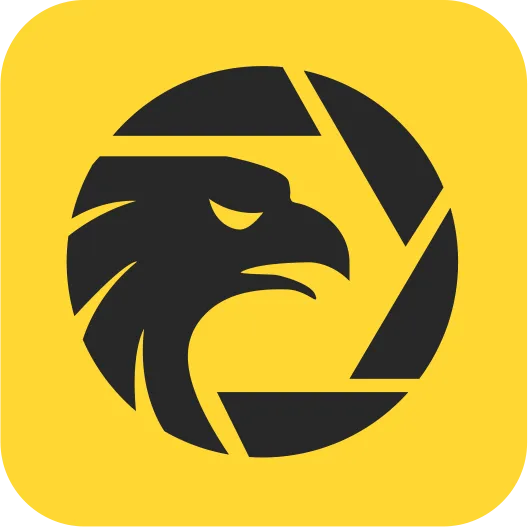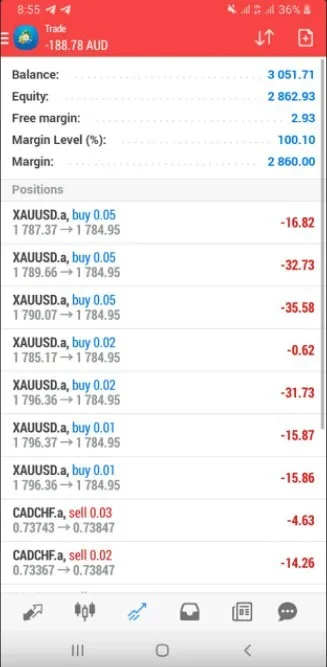Unternehmensprofil
| PNB Überprüfungszusammenfassung | |
| Gegründet | 1916 |
| Registriertes Land/Region | Philippinen |
| Regulierung | Keine Regulierung |
| Produkte und Dienstleistungen | Einzel- & Firmenkundengeschäft, Kredite & Hypotheken, Überweisung, Versicherung, Investitionen, Aktienhandel, Mobile & Online-Banking |
| Demokonto | / |
| Hebel | / |
| Spread | / |
| Handelsplattform | PNB Digital App |
| Mindesteinzahlung | PHP 3.000 (für einfaches Sparkonto) |
| Kundensupport | Hauptleitung: (+632) 8526 3131 |
| Bank-Hotline: (+632) 8573-8888 | |
| E-Mail: customercare@pnb.com.ph | |
| Soziale Medien: Facebook, X, Instagram, YouTube, LinkedIn | |
PNB Informationen
Philippine National Bank (PNB) ist eine der ältesten und größten privaten Geschäftsbanken auf den Philippinen, die 1916 eröffnet wurde. Derzeit wird sie von keiner Finanzbehörde, weder in den USA noch im Ausland, reguliert, bietet jedoch über ihr großes Netzwerk von Filialen und Geldautomaten eine vollständige Palette traditioneller und digitaler Finanzdienstleistungen für Kunden in den USA und im Ausland an.

Vor- und Nachteile
| Vorteile | Nachteile |
| Langjährige Bankgeschichte seit 1916 | Nicht reguliert |
| Umfangreiches lokales und internationales Filialnetzwerk | Komplexes Gebührenmodell |
| Bietet eine breite Palette von Bankdienstleistungen | |
| Verschiedene Kontaktmöglichkeiten |
Ist PNB legitim?
PNB wird von keiner philippinischen Finanzinstitution, einschließlich der Securities and Exchange Commission (SEC) und der Bangko Sentral ng Pilipinas (BSP), reguliert. Darüber hinaus wird sie von keinem international anerkannten Finanzregulierer wie der FCA (UK), ASIC (Australien) oder CySEC (Zypern) überwacht.
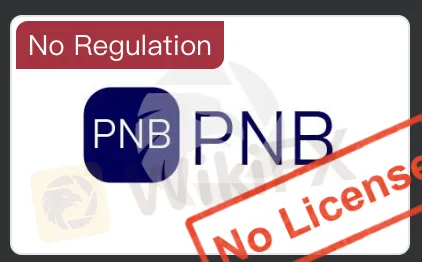
Produkte und Dienstleistungen
PNB bietet eine breite Palette traditioneller und innovativer Finanzdienstleistungen, einschließlich Einzelhandelsbanking, Firmenkundenbanking, Überweisungen, Vermögensverwaltung, Kredite, Versicherungen und Anlagemöglichkeiten. Es verfügt über eines der größten Inlands- und Auslandsfilialnetze aller philippinischen Banken und bedient sowohl lokale als auch weltweite philippinische Kunden.
| Produkte / Dienstleistungen | Unterstützt |
| Einzelhandels- & Firmenkundenbanking | ✔ |
| Darlehen & Hypotheken (z. B. OPHL) | ✔ |
| Überweisungsdienste | ✔ |
| Versicherungen (Leben & Nicht-Leben) | ✔ |
| Investitions- & Treuhanddienste | ✔ |
| Aktienhandel | ✔ |
| Mobiles & Online-Banking | ✔ |
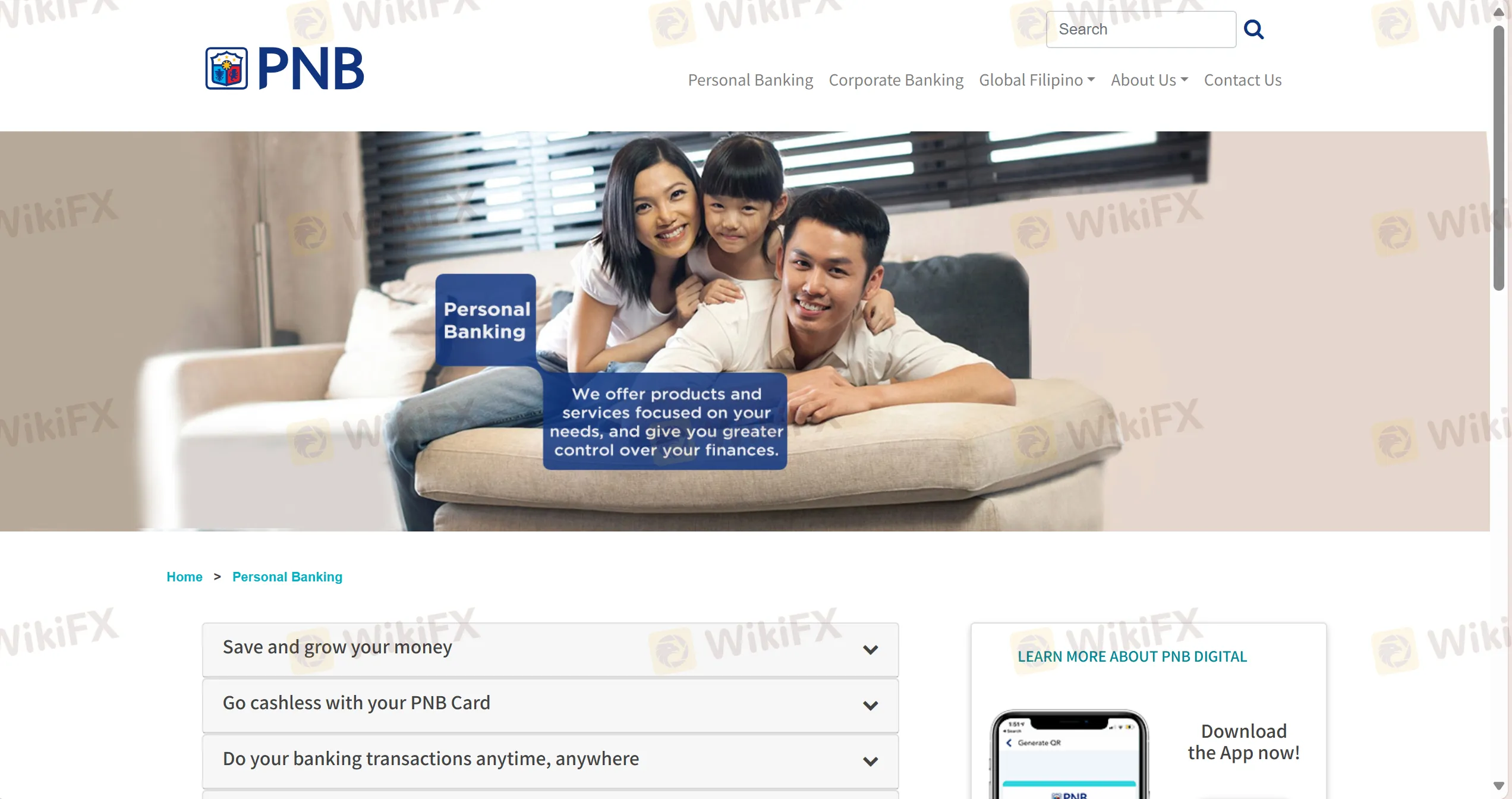
Kontotypen
| Kontotyp | Zweck / Funktionen | Geeignet für |
| Sparbuch | Basis-Einlagenkonto; Ersteinzahlung ab PHP 3.000 | Alltags-Sparer |
| Girokonto | Wird mit Scheckbuch geliefert; für einfache Zahlungen und Zugriff auf Mittel | Einzelpersonen/Unternehmen, die Flexibilität bei Zahlungen benötigen |
| Festgeld | Festgeld mit Zinsen | Diejenigen, die nach sicherem Sparwachstum suchen |
| Fremdwährung | Zum sicheren Halten von Fremdwährungen | Einzelpersonen mit Devisenbedarf oder Auslandstransaktionen |
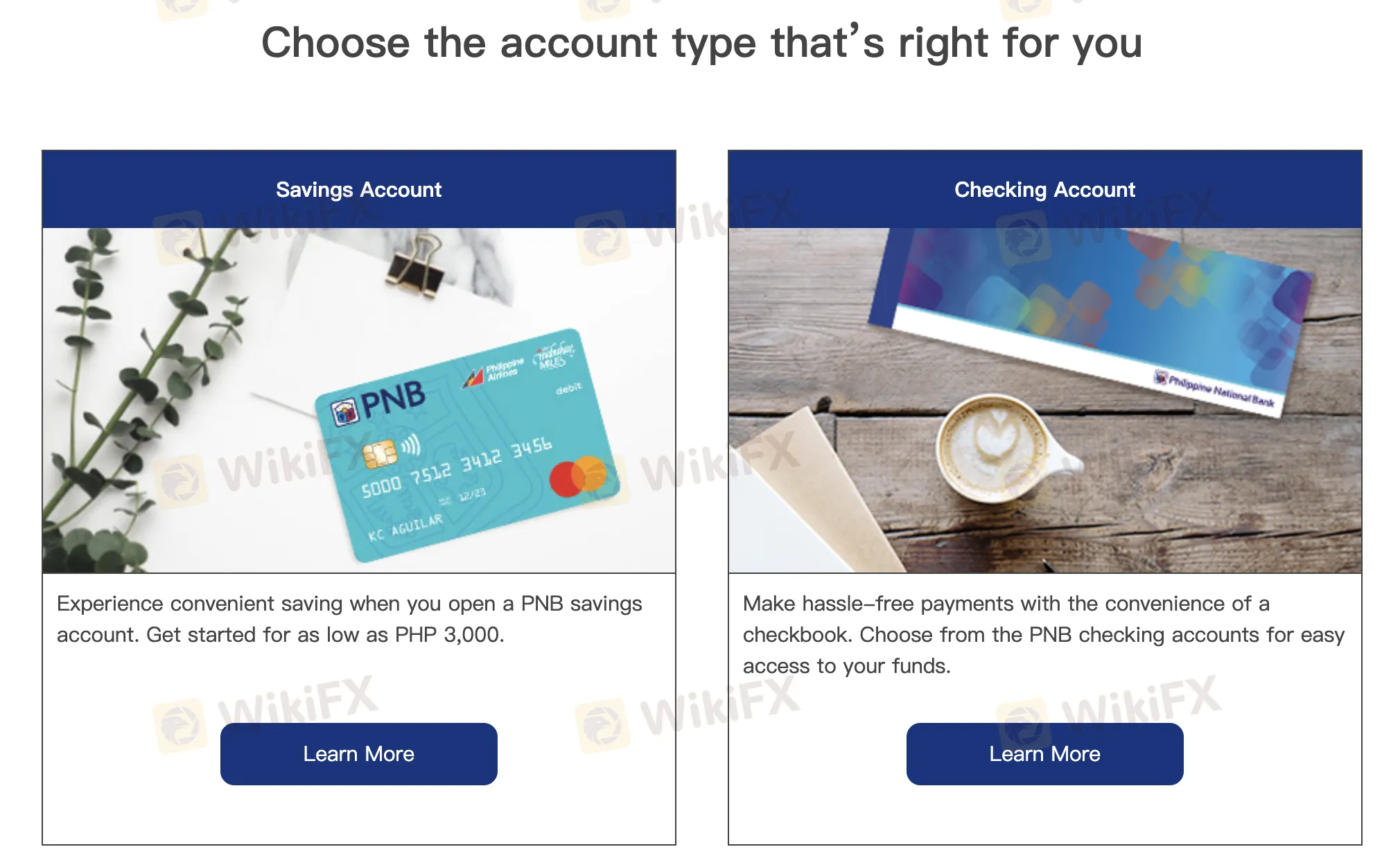
PNB Gebühren
Im Vergleich zu anderen Banken erhebt PNB moderate bis hohe Gebühren, insbesondere für Transaktionen zwischen Filialen und mit Personen aus anderen Ländern. Innerhalb ihres Netzwerks sind einige Dienstleistungen wie die Überprüfung Ihres Kontostands und die Nutzung eines Geldautomaten kostenlos. Viele andere Dienstleistungen, insbesondere solche, die Filialen in verschiedenen Regionen, auf anderen Inseln oder mit verschiedenen Währungen involvieren, haben jedoch unterschiedliche Gebühren.
| Gebührenkategorie | Beschreibung | Gebühr |
| Einzahlung zwischen Filialen | Gleiche Region: KostenlosAndere Region: ₱50/₱100K oder mehr | Mindestens ₱50, ₱50 pro ₱100K |
| Scheckeinlage zwischen Filialen | Regulär ↔ Inselfiliale | ₱100 |
| USD Bargeld-/Scheckeinlage | Alle Filialen | ₱100 |
| Abhebung zwischen Filialen (PHP) | Regulär ↔ Inselfiliale | ₱200 |
| USD Abhebung/Auszahlung | Alle Filialen | ₱200 |
| Geldautomat (Lokal) | PNB Geldautomat: KostenlosAndere Banken: ₱15 Abhebung, ₱2 Kontostandsabfrage | ₱2–₱15 |
| Geldautomat (International) | Abhebung: ₱150–₱250Kontostandsabfrage: ₱75 | ₱75–₱250 |
| Digitale Überweisungen (Einzelhandel) | InstaPay / PESONet | ₱20 pro Transaktion |
| Digitale PNB-zu-PNB-Überweisung | Erste 3 pro Woche kostenlos; danach ₱10 pro Überweisung | ₱0–₱10 |
| Über-die-Theke-Dienstleistungen | Abhebungsschein: ₱50Nachbestellung von Scheckbüchern: ₱250–₱500Bankbescheinigung: ₱200 | Variiert |
| Eingehende USD-Überweisung | Servicegebühr + DST | $5–$8 |
| Ruhezustandsgebühr | Nach 5 Jahren Inaktivität | ₱30 / $0.50 (ausgewählte Konten) |
| Frühe Schließung (≤30 Tage) | PHP-Konten: ₱500USD-Konten: $10 | ₱500 / $10+ |
| Verwaltungsgebühr für das Mindestguthaben | Peso: ₱350–₂500USD: $10–$20Andere Währungen variieren | ₱350+ / $10+ |
| Weitere Gebühren | Kontoauszugsanforderungen, Überweisungen, Nachfrageentwürfe, Mietung von Schließfächern, etc. | Variiert je nach Service |
Handelsplattform
| Handelsplattform | Unterstützt | Verfügbare Geräte | Geeignet für |
| PNB Digital App | ✔ | Android, iOS | / |
